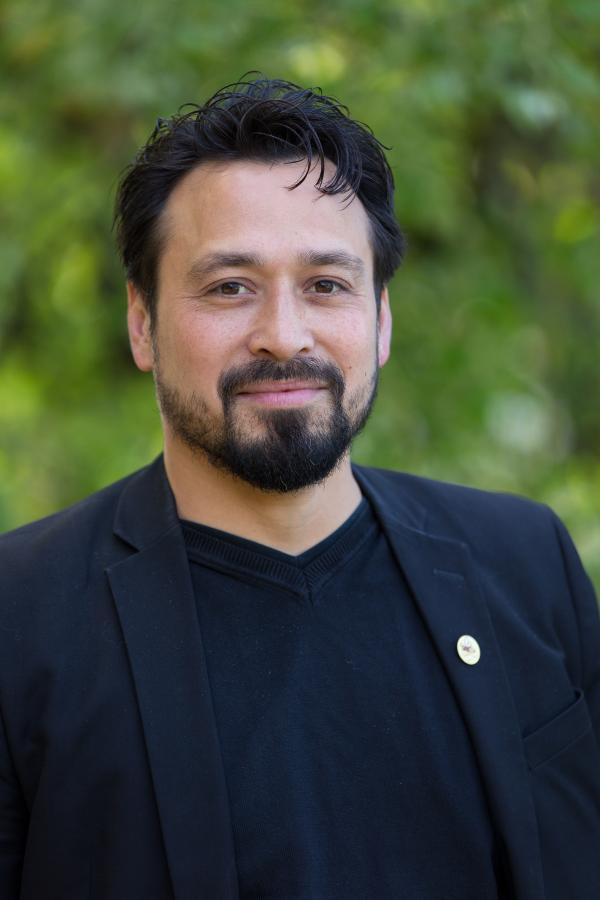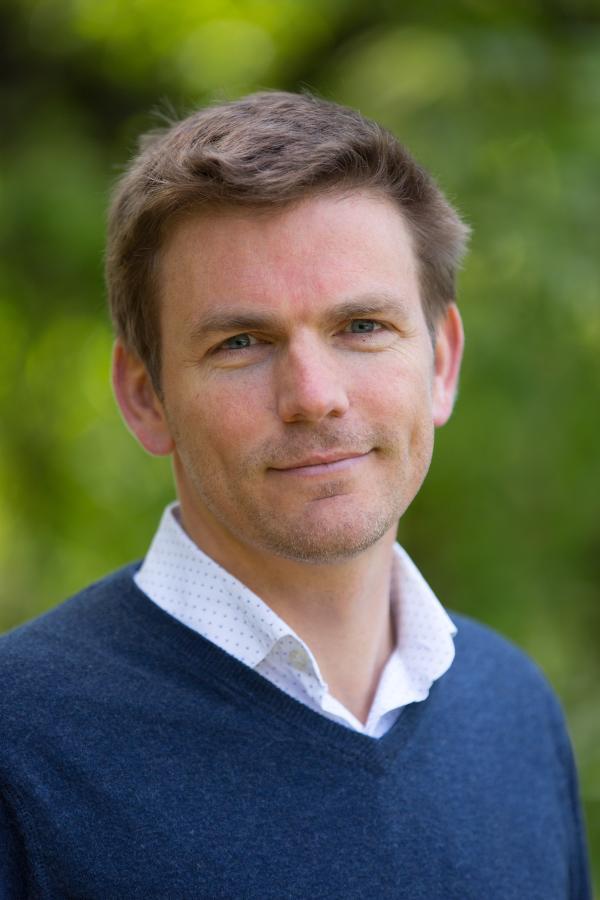At this company, climate bees take a new job as environmental researchers
By Chris Welsch
The way Bach Kim Nguyen and Michaël Van Cutsem see it, their Belgium-based company, BeeOdiversity, is already the largest employer in the world, with 12.5 million workers – who happen to be bees.
These bees, in hundreds of hives in 11 countries, tirelessly gather pollen across broad swaths of land, producing incredibly detailed information and indicators about the plants, pollution, and pesticides around their hives.
“Each hive has 50 000 bees, and in a year they collect four billion samples,” says co-founder Bach Kim Nguyen, a scientist whose PhD was on bee colony losses – a problem worldwide. “We analyse the samples in the lab for a big company or a government institution and make recommendations based on the data.”
The pollen is loaded with qualitative and quantitative indicators about the environment in the 700-hectare area patrolled by the bees in each hive. The company makes prioritised recommendations to best protect and improve the environment, for both people and the ecosystem as a whole.
For Kim, the motivation in the beginning was about helping bees, who are facing numerous challenges because of habitat loss, pesticides, and diseases. He and Michaël, the other founder, started out developing a honey-producing business, but decided they wanted to have a much more ambitious goal.
“We thought that we would work on bigger issues, like biodiversity and pollution, and at the end, we would save the bees,” Kim says.

Bach Kim Nguyen
BeeOdiversity won second place in the special category of the 2020 EIB Institute Social Innovation Tournament, earning €20 000.
Many practical applications
Michaël, who had been working as a corporate lawyer and entrepreneur, met Kim during the executive MBA programme at the Solvay Business School in Brussels in 2011. Michaël was motivated to change his career path by a yearlong trip through South America.
“I went backpacking on my own in the mountains, and met people who were suffering because of environmental changes,” he says. “When I came back I wanted to do something about it.”
At the business school, he met a lot of people taking a traditional approach to their careers, but he was looking for a path with meaning. “When I met Kim, with a completely different project, I was quite inspired, and it was clear it was with him I had to work,” he says.
In 2012, BeeOdiversity was born. In the years since, the company has been growing and changing steadily. It has its own colonies of bees in Belgium, which it will hire out to those wanting an analysis of the land around them. Through a proprietary system, pollen samples are taken as the bees return to their hives – enough pollen for the lab but not so much to affect the bees’ nutritional needs.
BeeOdiversity uses that pollen to create a thorough portrait of the environment for its clients, such as De Watergroep, the largest drinking water company in Flanders, which serves more than 177 municipalities.
Simon Six, water resources team manager, says the information collected by the bees helps the company in its mission of providing clean drinking water.
“The interesting bit is that the flying range of the bees more or less corresponds to the protection zones around the abstraction points,” he says. “There is a direct link between the results obtained and optimum water protection.” He says BeeOdiversity’s expertise and clear reports help De Watergroep make wise choices about land management.
As BeeOdiversity found clients in other countries, including the United States, it started reaching out to local beekeepers and has increasingly used their hives and bees to do the groundwork.
Connecting with local farmers
“In 80% of cases, there is at least one beekeeper on staff” at a company or organisation seeking help from BeeOdiversity, says Michaël, “which is great, because they become an ambassador for the programme.”
BeeOdiversity provides local beekeepers with the necessary equipment and protocols to collect data. Because of Kim’s expertise, they are also often able to help the beekeepers improve the mortality rate in their hives. Kim says BeeOdiversity’s bee colony mortality rate, or the number of colonies lost each year, is typically 10%, while the global average is about 30%.
BeeOdiversity has often been successful in reducing pesticide use by connecting with farmers and showing them how they can get similar results without using as much harmful chemicals.
“There’s a gamification element,” says Michaël, adding that over a period of time, farmers and other residents take pride in seeing how their actions have a tangible effect on biodiversity and the quality of the environment. As more varieties of flowering plants emerge, pollinators like bees and butterflies return, which helps the farmers with their crops.

Michaël Van Cutsem
“Plants are at the base of the food chain, so when you have a healthy plant community, everything else benefits,” says Kim.
Michaël noted other potential applications for “BeeOmonitoring”: helping smart cities improve air quality and green area management; supporting sustainable food practices in the food industry; real estate and other industries being able to act and measure their positive impact; and protection of watersheds.
As the company’s database and expertise grew, Michaël and Kim decided they wanted to go a step further. In their pitch for the 2020 Social Innovation Tournament, they introduced this new direction, called BeeOimpact.
“We want to expand monitoring worldwide, to Africa, South America – everywhere if possible,” Kim says. “We want to create value with all the data we have now.”
BeeOimpact is a software platform, still in development, that uses mapping tools and artificial intelligence to make an assessment of local conditions, potentially anywhere, by comparing BeeOdiversity data with other databases. A free version of the service would be available to anyone. For companies, cities, and other agencies, there would be a subscription fee for a premium service.
With a fair degree of accuracy, such an assessment could predict what kinds of pollutant and pesticides are present in a given area, assess biodiversity, and make targeted recommendations.
Kim says the idea is to have the broadest possible impact while empowering people with information that will help them take effective action.
“Everyone can be a part of the solution and have an impact on the environment,” he says.
Click here to learn more about the EIB Institute and its Social Innovation Tournament.